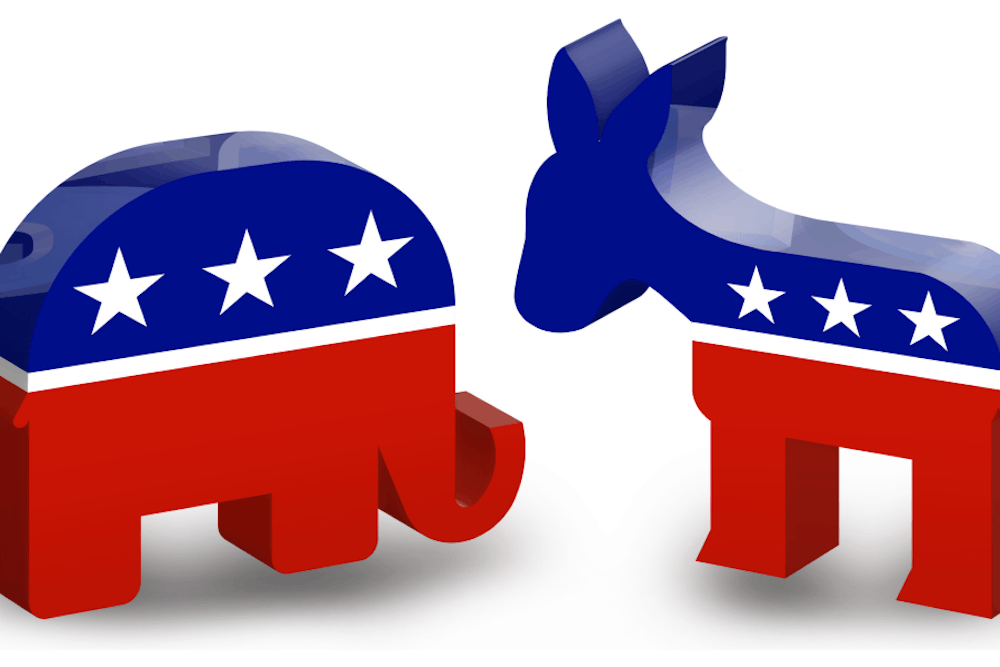Andrew's Assessment
By Andrew Geisler, For The Miami Student
Last week the Republican Party finally took care of its electoral business and then some. They padded their already large House majority and will have at least 246 seats in the 114th Congress. They took over the Senate with what will likely end up a 53/47 or 54/46 advantage and won governorships in deep blue states like Illinois, Massachusetts and Maryland, while holding important Midwest gubernatorial races in Wisconsin, Ohio and Michigan.
Most of these big wins were to be expected. Electoral conditions greatly favored the GOP in many of their Senate pick-ups, but 2014 truly became a wave when nearly every close race across the country broke the Republican's way.
The results are great for the Republican Party, and set up an interesting 2016 showdown for a party in control of a majority of both Houses of Congress, but also the vast majority of State Houses and governorships.
After a big win, there is always talk of what sort of a mandate voters delivered to their politicians, and what should be done with this mandate. Low voter-turnout midterms - 36.6 percent last week compared to 57.5 percent for 2012 - do not provide sweeping mandates for elected officials.
This year will likely not prove to be an exception to this rule. Congressional politics is one big game of inside baseball. The day-to-day machinations of the House and Senate are not big news to the vast majority of Americans. With that being said, controlling both Houses of Congress gives the national Republican Party the excellent opportunity to tell the larger 2016 electorate what their party is for.
Many commentators have framed this opportunity as an imperative for the GOP to have a chance in 2016. This is not quite right. If Congress is able to function well (and that's a big if), it's a nice bonus for a party held in low regard by the public. But the only real way to shift the perception problem is to have an effective conservative spokesperson as the 2016 Republican nominee.
Repeal the medical device tax, pass the Keystone pipeline and pass as many trade agreements as you want, then see if the president will truly veto these economy-boosting measures. Taking up measures like this to frame the party as for jobs - the main thing Republican politicians have talked about in the age of Obama - is fine. It's the legitimate work of a deliberate legislative body attempting to restrain the Obama administration's runaway progressivism to pass such measures.
But conservatives must also understand the political limits of the powers they've been afforded. Passing a full repeal of the Affordable Care Act through the burdensome reconciliation process might feel good, but it is much better strategy to pull out some of the most egregious pieces of the bill and send them to the president's desk one by one. Show the difference between the two parties as starkly as possible. Let the party of massive overreaching government show its true colors as many times as possible.
Sweeping legislation empowering the ever-expanding administrative state is anathema to Republicans and the best way to show the thoughtless overreach of modern progressivism is to tease out one by one these overreaches. The best thing to do is to make the president veto a repeal of things like the employer mandate and the medical device tax separately could do much more political damage to the Democratic brand.
The nature of the Senate, with its emphasis on unanimous consent and the importance of having 60 votes, makes it hard for Republicans to really show what they're for. But with the possibility of a more truly open Senate floor this Congress, at least some conservative reform measures could be put to a vote.
Enjoy what you're reading?
Signup for our newsletter
Presidential elections are the real ground for political contrast in modern American politics. Like it or not, Congress tends to be just a tool in the strategy surrounding these massive political events every four years. This means individual Senators looking to boost up their reputation heading into the election could railroad the entire process with their egos. That is certainly possible, but it won't sink Republican's 2016 chances.
That's because Republicans should be necessarily focused on their state-level successes. The party now has full control of 29 state legislatures and 32 governorships. Congress is the tool of those interested in central planning, but the states are where the action should and will be for conservatives headed into 2016.
The conservative political disposition should gravitate towards James Madison's words in the 45th Federalist paper. Here Madison writes the federal government's powers in the new Constitution are "few and defined," while state government powers are "numerous and indefinite."
This reads like an anachronism, but conservatives can and should be for this sentiment. In 2016, there will certainly be a few President Obama style candidates coming out of the Senate -people who are short on accomplishments, but long on rhetorical flourishes. Republicans voters cannot get caught up in the rhetoric like Democrats did in 2007 and 2008 to their political peril.
Fortunately there will be state chief executives with real experience in the race too, no matter what happens in the D.C. bubble, conservatives will be smart to flock their way.




